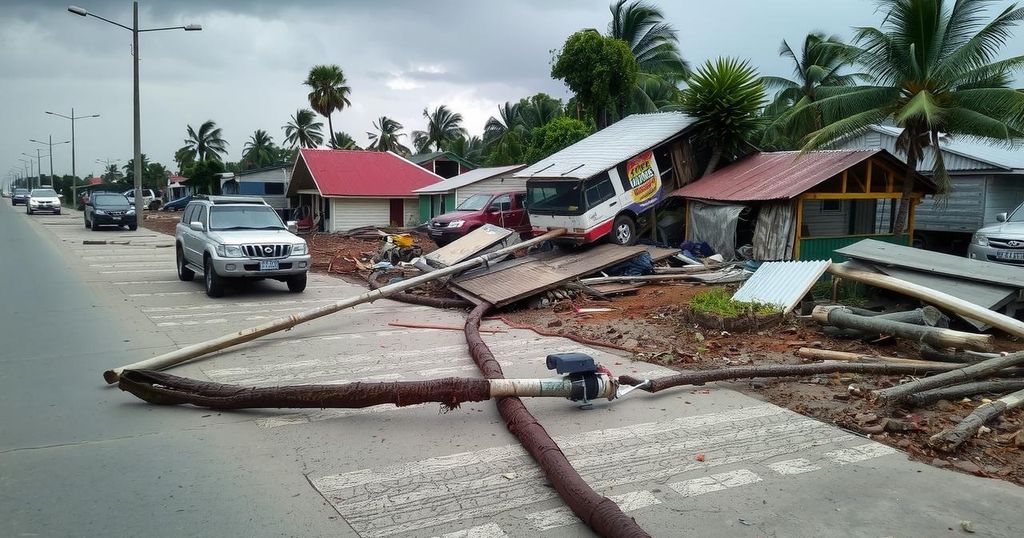Cyclone Chido Death Toll in Mozambique Increases to 45, Extensive Damage Reported

The death toll from Cyclone Chido in Mozambique has risen to 45, with the majority of fatalities occurring in Cabo Delgado province. Nearly 500 individuals were injured, and extensive property damage includes 24,000 homes destroyed and over 181,000 people affected. The cyclone’s severe winds and rains have exacerbated the region’s existing vulnerabilities.
As Mozambique grapples with the aftermath of Cyclone Chido, the death toll has unfortunately risen to 45, according to the National Institute of Risk and Disaster Management. The cyclone first impacted the Cabo Delgado province on December 15, 2024, where the majority of fatalities occurred. Reports indicate that 38 individuals perished in Cabo Delgado, four in Nampula, and three in Niassa, with one person still unaccounted for. In addition to the loss of life, nearly 500 people sustained injuries and extensive destruction was reported, with approximately 24,000 homes completely destroyed and an additional 12,300 partially damaged, affecting more than 181,000 residents. Cyclone Chido, which brought winds reaching 260 kilometers per hour and significant rainfall, exacerbated the already precarious situation in a region regularly impacted by severe weather conditions, ongoing conflict, and developmental challenges.
Cyclone Chido’s tragic impact is part of a broader narrative affecting northern Mozambique, a region that faces recurrent natural disasters compounded by socio-economic vulnerabilities. Cyclones are a persistent threat in this area, not only due to their physical destruction but also because they challenge an already fragile infrastructure. The cyclone originated in the Indian Ocean and hit the island of Mayotte before continuing to Mozambique, where it has caused considerable devastation and loss of life. The reports of casualties and damaged homes speak to the urgent need for disaster management and relief efforts.
In conclusion, Cyclone Chido has had a profound and tragic impact on Mozambique, with the death toll now reaching 45 and extensive damage inflicted across several provinces. The response to such natural disasters requires immediate attention to enhance preparedness and recovery initiatives in vulnerable regions. The statistics reflect not only the human cost but also the critical infrastructure challenges that require addressing to mitigate future risks.
Original Source: www.seychellesnewsagency.com








